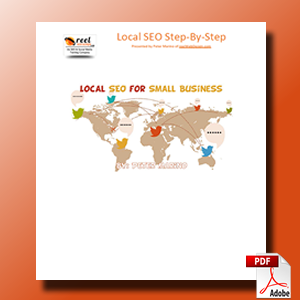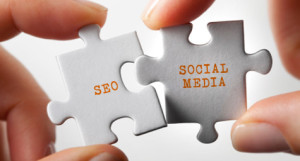 There are two main social media platforms these days – Facebook and Twitter. The latter is much less known and has less than half the number of users than the former. But that doesn’t make Twitter any less important than Facebook. It allows businesses a unique position to become authorities in their given field. It allows for users to share ideas in short, impactful updates and others to follow exactly what is going on with small little bites along the way. Finally it allows for trending topics to be followed and discussed between millions of other Tweeters. But a big question – how does it work and how can I make it work? Can I create a trend out of thin air? Here is how Twitter works and some of its core elements.
There are two main social media platforms these days – Facebook and Twitter. The latter is much less known and has less than half the number of users than the former. But that doesn’t make Twitter any less important than Facebook. It allows businesses a unique position to become authorities in their given field. It allows for users to share ideas in short, impactful updates and others to follow exactly what is going on with small little bites along the way. Finally it allows for trending topics to be followed and discussed between millions of other Tweeters. But a big question – how does it work and how can I make it work? Can I create a trend out of thin air? Here is how Twitter works and some of its core elements.
What does it mean to be trending?
If you ever wanted to learn about what the younger generation is doing or cares about these days, finding what is trending on Twitter is vastly important to this end. Twitter’s metadata tags are called hashtags, and look something like these: #SuperBowl #Grammys or #Science. When users display hashtags within their tweets (generally to end a tweet), that tweet is grouped with other tweets whose users have used the same hashtag. A user can then discover what others are saying about the #SuperBowl and then engage in additional dialogue with those users, perhaps discussing a blown call, nice catch, or off-the-field story with a player and his celebrity girlfriend.
So that’s a quick overview, now how can a business use Twitter?
Now if that’s the type of thing people use Twitter for in regards to personal use, how to businesses use Twitter to their advantage? Well for one, businesses can jump in and engage with users like in the example above. Businesses can ask users questions about their favorite flavor of soda and engage in public conversation surrounding a trending topic. If a user Tweets at your business and asks a question (about your service, product, or other business-related topics), you can answer them through the business’s Twitter account. One of Twitter’s benefits is that you can manage relationships with current and potential customers quickly and easily. It’s best not to get into flame wars with other users or start back and forth battles of he-said-she-said. Some other things to remember:
- Part of the business’s reputation is tied to its Twitter account
- Trending can be good or bad for public relations (depending on why your business is trending)
- Potential customers as well as other businesses see your tweets
- Always Tweet in grammatically-correct and proper English
How often should the business tweet?
There is a point in which you might ask yourself, how often should we use the business’s Twitter account? Well, fairly regularly. Businesses are expected to have social media pages these days. Regularly updating and engaging with other users is a must. When a user asks a question, answer the question within 24 hours at least. Here are some great ways to tweet as a business:
- Retweet and share business-related news bits
- Introduce new product lines or services
- Connect with other businesses on Twitter
- Announce deals and coupons
- Share fresh blog content
Being overly promotional is something to stay away from. Nothing turns a user off more than following someone new and finding out all they do is spam links to their site and spout off about how great their business is. Temper that. If your business gets a column written about it by Forbes Magazine, then obviously you’re going to want to show off to others.
Twitter is like learning how to read a new language. At first it seems completely over your head and as if you don’t have what it takes, but with a little patience and being open-minded to learning how it works, you’ll find success. While businesses are pressured to be on social media these days, these digital platforms offer businesses unique ways to wrangle up new customers and engage with other users and businesses. Twitter can help grow your business and enter the new era of digital marketing. Twitter is no longer trending, it is a necessary aspect of any business.

 More than two billion people worldwide use the internet on a regular basis. In fact, this number is set to increase exponentially in a few years to come. This means that businesses can maximize their sales and increase their profits by tapping into the market potential that the internet has to offer. Unfortunately, many businesses fail to do this because they do not invest as much as they should in SEO marketing. Yes, SEO marketing can help your business in ways you never thought possible. Here is how SEO marketing can be of benefit to you.
More than two billion people worldwide use the internet on a regular basis. In fact, this number is set to increase exponentially in a few years to come. This means that businesses can maximize their sales and increase their profits by tapping into the market potential that the internet has to offer. Unfortunately, many businesses fail to do this because they do not invest as much as they should in SEO marketing. Yes, SEO marketing can help your business in ways you never thought possible. Here is how SEO marketing can be of benefit to you. Learn how to apply search engine optimization (SEO) and social media marketing tactics to your small business from the Internet Training Expert
Learn how to apply search engine optimization (SEO) and social media marketing tactics to your small business from the Internet Training Expert